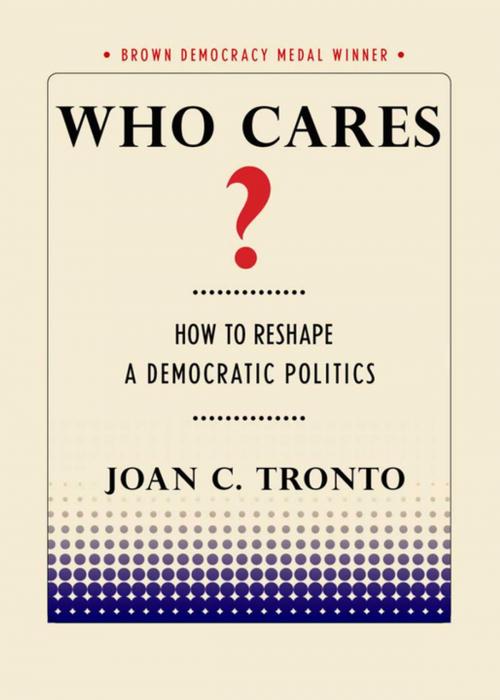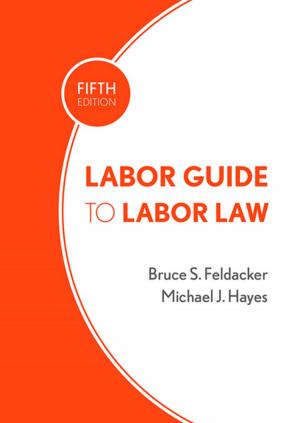Who Cares?
How to Reshape a Democratic Politics
Nonfiction, Social & Cultural Studies, Political Science, Government, Democracy, History, Americas, United States| Author: | Joan C. Tronto | ISBN: | 9781501702754 |
| Publisher: | Cornell University Press | Publication: | December 9, 2015 |
| Imprint: | Cornell Selects | Language: | English |
| Author: | Joan C. Tronto |
| ISBN: | 9781501702754 |
| Publisher: | Cornell University Press |
| Publication: | December 9, 2015 |
| Imprint: | Cornell Selects |
| Language: | English |
The Laurence and Lynne Brown Democracy Medal recognizes outstanding individuals, groups, and organizations that produce exceptional innovations to further democracy in the United States or around the world.
The 2015 winner of the Brown Democracy Medal, Joan C. Tronto, argues in Who Cares? that we need to rethink American democracy, as well as our own fundamental values and commitments, from a caring perspective. Asserting that Americans are facing a "caring deficit"—that there are simply too many demands on our time to care adequately for children, elderly people, and ourselves—she asks us to reconsider how we allocate care responsibilities. At the same time, while democratic politics should help citizens to care better, most people see caring as unsupported by public life and deem the concerns of politics as too remote from their lives to make a difference in this sphere. Tronto traces the reasons for this disconnect and argues for the need to make care, not economics, the central concern of democratic political life.
The Laurence and Lynne Brown Democracy Medal recognizes outstanding individuals, groups, and organizations that produce exceptional innovations to further democracy in the United States or around the world.
The 2015 winner of the Brown Democracy Medal, Joan C. Tronto, argues in Who Cares? that we need to rethink American democracy, as well as our own fundamental values and commitments, from a caring perspective. Asserting that Americans are facing a "caring deficit"—that there are simply too many demands on our time to care adequately for children, elderly people, and ourselves—she asks us to reconsider how we allocate care responsibilities. At the same time, while democratic politics should help citizens to care better, most people see caring as unsupported by public life and deem the concerns of politics as too remote from their lives to make a difference in this sphere. Tronto traces the reasons for this disconnect and argues for the need to make care, not economics, the central concern of democratic political life.















